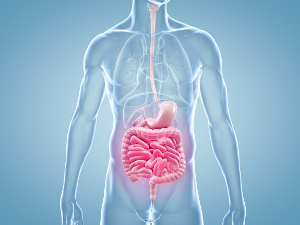Glucosamine for osteoarthritis may also improve your digestion
 For decades, glucosamine has been used to prevent and treat osteoarthritis. According to a new study that is published in Nutrients, glucosamine supplements may also improve your digestion by counteracting abdominal bloating, constipation, and lumpy stools. It even looks as if glucosamine has other health benefits.
For decades, glucosamine has been used to prevent and treat osteoarthritis. According to a new study that is published in Nutrients, glucosamine supplements may also improve your digestion by counteracting abdominal bloating, constipation, and lumpy stools. It even looks as if glucosamine has other health benefits.
Glucosamine is a sugar compound and an important structural component of articular cartilage. As we grow older, our endogenous glucosamine synthesis decreases, causing gradual deterioration of our cartilage. For decades, glucosamine supplements have been used to treat osteoarthritis and it has been shown to improve mobility and lower mortality. Now, it even appears that glucosamine can improve our digestion and muscle health.
Normally, glucosamine is extracted from crustaceans but in the new study, the participants were given supplements of glucosamine from other sources than shellfish.
The study revealed an unexpected effect on gut health
It was scientists from Lindenwood University, the University of California, Davis, Increnovo LLC, Jamieson Wellness Inc., and Dr. Theo’Inc that carried out the study as a double-blinded, placebo-controlled cross-over study. In the trial, healthy men and women received three grams of glucosamine daily or placebo for three weeks. They were asked to report about their digestion, and fecal samples were collected at baseline and after the study had been completed.
The scientists found that the glucosamine supplements improved the participants’ digestion by reducing abdominal bloating, constipation and lumpy stools.
Stool samples showed that the participants that got glucosamine had significantly fewer potentially harmful bacteria such as Pseudomonadecae, Peptococcacea, and Baccilacea. In contrast to regular fiber products that stimulate the growth of beneficial bifidobacterial, glucosamine did not affect this part of the gut flora. Nonetheless, this study revealed that glucosamine tended to positively influence the intestinal microflora and metabolism
Bonus effect on muscles needs a closer look
The scientists also found that glucosamine was able to increase the body’s retention of amino acids related to muscle health, including the so-called BCAAs (leucine, isoleucine, and valine). This may lead to new studies where scientists look into glucosamine’s effect on age-related loss of muscle mass (sarcopenia) and other conditions that involve accelerated breakdown of muscle protein. The new study is published in Nutrients.
Glucosamine and cardiovascular disease
Patients who take glucosamine for their osteoarthritis can apparently lower their risk of cardiovascular disease, according to a large population study that is published in British Medical Journal. Still, the researchers call for additional clinical studies to test the hypothesis about cardiovascular benefits.
| When you go shopping for a glucosamine product, always make sure that it is pharmaceutical-grade and contains glucosamine sulfate, which is the form of glucosamine that has a documented effect. |
References
Jessica M. Moon et al. Impact of Glucosamine Supplementation on Gut Health. Nutrients 2021
Stephen Daniells. From joints to guts: RCT supports glucosamine´s gut health benefits. NUTRAingredients.com 2021
MA H et al. Association of habitual glucosamine use with risk of cardiovascular disease: prospective study in UK Biobank. BMJ 2019
Nelson AE et al.: A systematic review of recommendations and guidelines for the management of osteoarthritis: The Chronic Osteoarthritis Management Initiative of the U.S Bone and Joint initiative. PubMed 2014
Search for more information...
- Created on .








